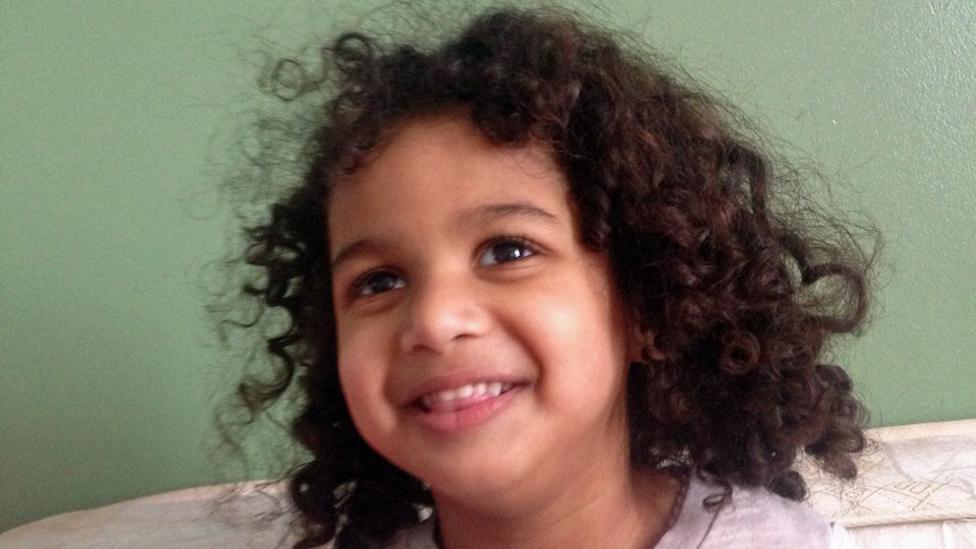Genetic testing: Babies with rare illnesses given hope
- Published
"Our baby's condition is so rare it has no name"
Dozens of babies with rare illnesses have been given "new hope" since Wales became the first part of the UK to offer genetic testing two years ago.
Children who are seriously ill in hospital can be considered for a test that reads their entire DNA code.
It has led to a diagnosis in 40% of cases, experts said, and a "great leap forward" in their treatment.
It is now hoped the test can be extended to more children with a suspected genetic illness.
It has already given one baby in Wrexham "a chance to overcome her problems", according to her mum, Chloe Hamill.
Baby Thea turned blue shortly after she was born and had to be rushed to a special care unit at Wrexham Maelor Hospital, then on to Alder Hey hospital in Liverpool.
"It was five hours before we could see her... she was on a lot of different machines," her mum said.
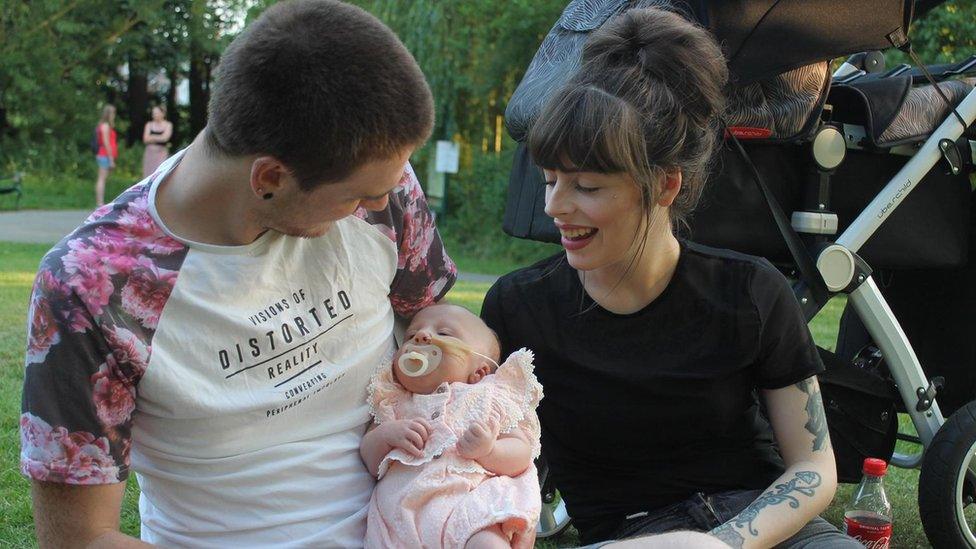
Baby Thea has a genetic disorder diagnosed in just 10 other people in the world
Doctors discovered problems with her nose and airway.
"She was essentially suffocating," Chloe said.
After a number of operations, Thea was finally well enough to come home. But she was not developing like other babies and at the age of seven months was still sleeping like a newborn.
Specialists did a battery of tests, including on Thea's birth placenta, but Chloe said "nothing came back".
"We were just so confused we didn't know why she was so poorly - there were no answers," she said.
Then one day, while scrolling through Facebook, Chloe stumbled upon a BBC Wales News video about a new genetic test, external that had become available for critically ill children in Wales.
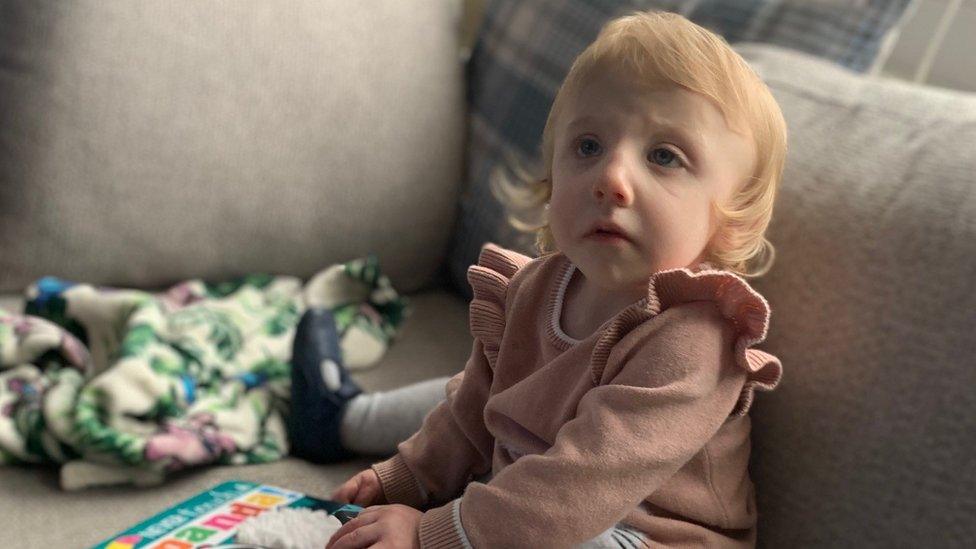
Thea's condition is so rare her mum said she would not have been able to Google it
Thea became eligible when she had to be admitted to the hospital for a chest infection.
Within a week, Chloe got a call from a specialist genetics team in Cardiff.
"They said they had found something," she said. "It was an incredible moment it felt like a weight off our shoulders."
Thea was diagnosed with an EIF5A related disorder, a condition that was first reported in 2021.
At the time, Thea was only the sixth person in the world known to have it.
Angharad Williams, from the All Wales Medical Genomics Service, said it was a "Eureka moment" when the team analysed Thea's sample.
"There was a palpable happiness in the lab," said Ms Williams. "[Had we not made the discovery] it's very likely the family would still not know and potentially they'd be coming back to the NHS looking for more and more testing and it might have been a long time before they had an answer."
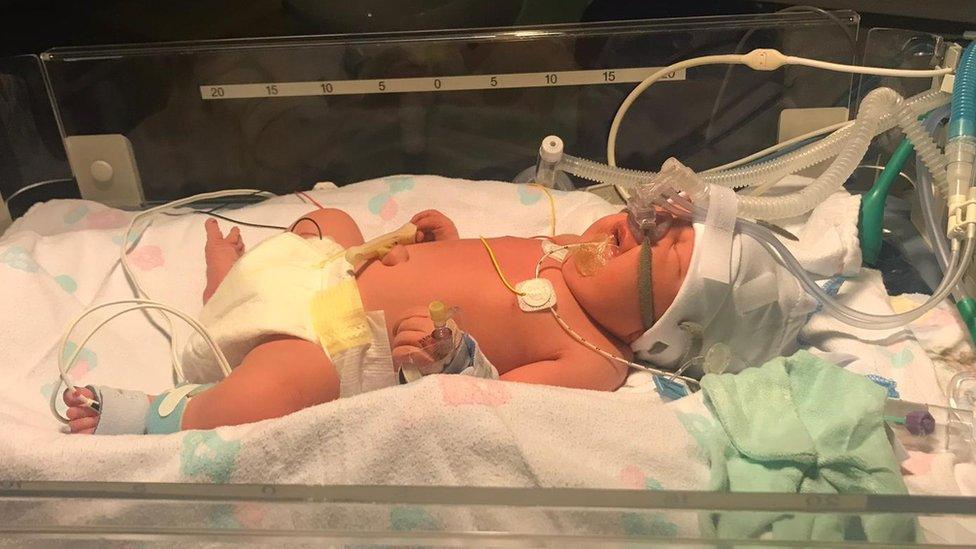
Thea's parents could not see her until five hours after she was born
Chloe said it was only by chance that she found out about the test.
"Perhaps we would never have known what was affecting Thea," Chloe said. "It's allowed specialists who need to be involved in her care to surround her in those areas that she's going to struggle.
"It's given her a chance to overcome her problems or at least learn how to deal with them."
It's hoped that soon children with a suspected genetic illness but who are not ill enough to need to be in hospital can also be offered the test.
"We have had nearly 50 families or children go through this service and about 40% - just under half really, have had a diagnosis directly as a result," said consultant geneticist Dr Ollie Murch, the clinical lead for the service.
"I think that all families get some kind of benefit, there are certain ones that have a big leap forward in their medical management and there have been cases where, effectively, the genetic test has led to a diagnosis and that has led to them having a treatment which is potentially curative.
"You can't put any money nor words onto how that must feel for those families, it's an amazing service."
Genome test finds boy's "one-in-a-million" illness
There are between 6,000 and 8,000 known genetic diseases, but many people with rare illnesses have to wait a long time for answers as experts try to pinpoint which genes - or parts of the DNA - might be responsible.
This can involve having lots of tests for specific conditions and can potentially mean years of uncertainty for them and their families.
Having a test that reads the entire genetic code gives experts the best chance of pinpointing the exact causes of their illnesses.
The test is a key part of the WINGS infants genomic service established in spring 2020, external.
So far the test has only been available to a limited number of babies and children who are so ill that they are in hospital.
But there are moves to expand it to children, suspected of having a rare genetic illness who are well enough to be at home.
It's also hoped eventually that adults could become eligible for the test. And the more people are tested, the more accurate the test will become.
"The next thing is to improve the test so that [the diagnosis rate] becomes 50%, then 55%," said Dr Ollie Murch.
"The more we do these tests, the more we understand and the more we know about rare diseases, the more things we can find."
Moral and Ethical Considerations
The ability to look at a person's entire DNA code raises important moral and ethical questions.
Experts say they will only look for information in a child's DNA that they know will be relevant to their condition.
Families will also have a big say about what level of information they want to receive.
People with rare genetic conditions, along with the families of children with rare illnesses, have been part of the process of setting up the new system.
- Published3 August 2020
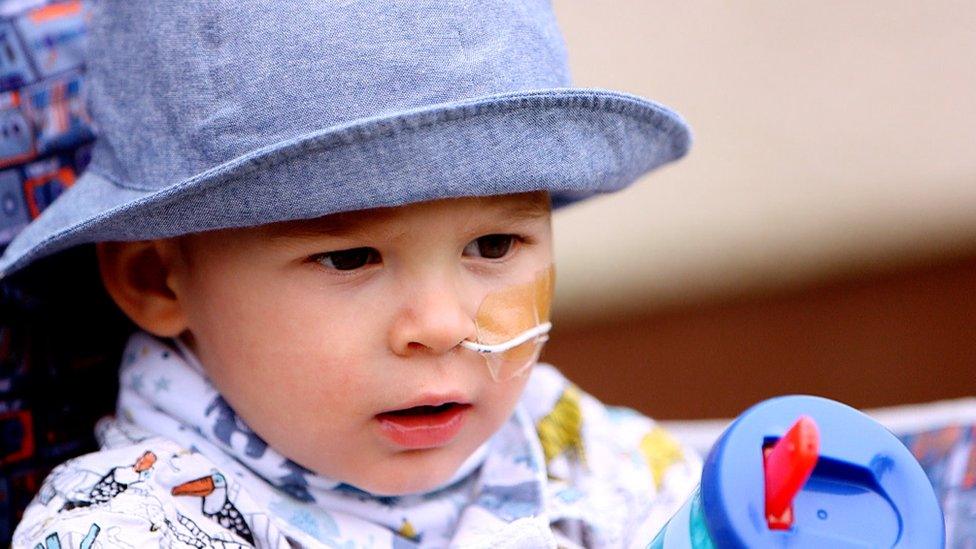
- Published17 March 2022
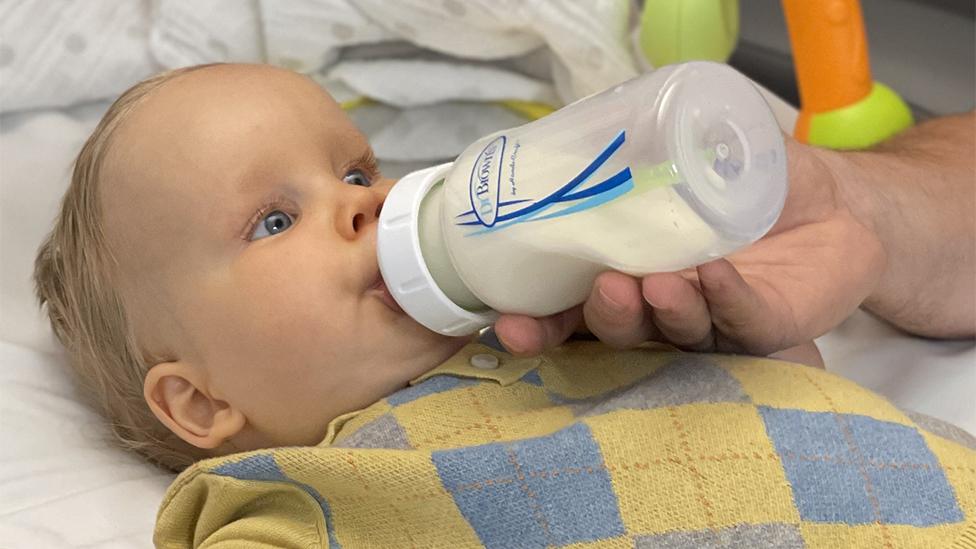
- Published30 July 2019
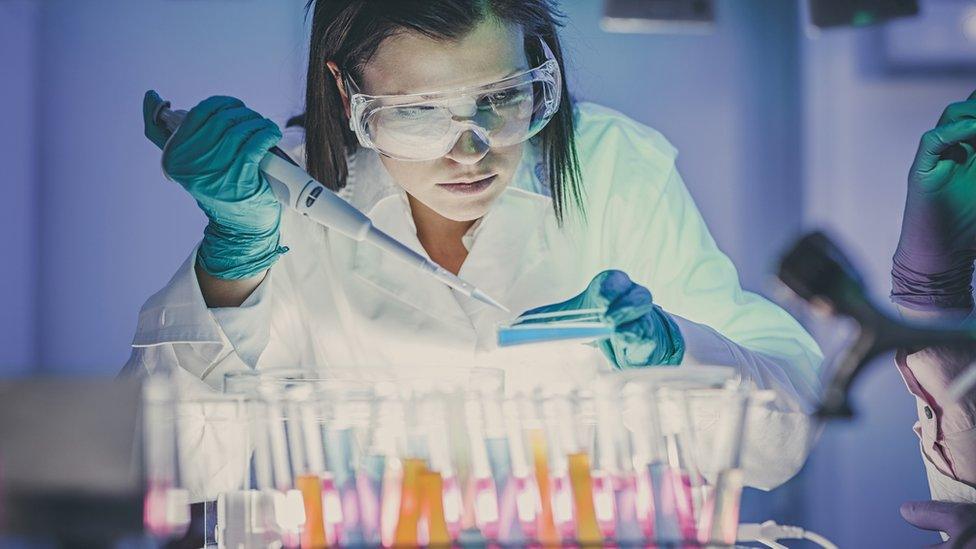
- Published29 February 2016
